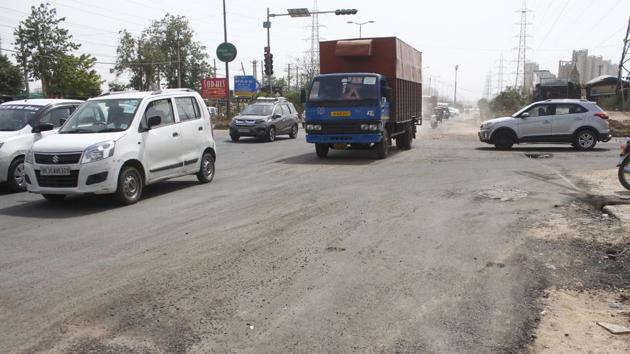Gurugram scores poorly in terms of walkability, footpaths absent in developing sectors: Study
Analysis by experts at the SPA also found that walkability decreases as one moves away from the city centre, with sectors near the Huda City Centre being highly walkable.
A recent study by Delhi’s School of Planning and Architecture (SPA) lends credence to what residents and experts have known and highlighted for long—Gurugram is not a pedestrian friendly city. The city has an average walkability index of just 0.45 out of 5, “reflecting an overall poor condition” of relevant infrastructure, the study states. This is significant in light of another data point revealed by the same study, which shows that 48% of all daily trips undertaken by Gurugram’s residents are on foot.

Analysis by experts at the SPA also found that walkability decreases as one moves away from the city centre, with sectors near the Huda City Centre being highly walkable. Conversely, peripheral areas, such as sectors 58, 68, 76, 99 and many others, were found to be the least walkable as they are largely “devoid of footpaths” and pedestrian-friendly infrastructure, the study notes.
A look at the number of pedestrian deaths shows the plight of Gurugram’s vulnerable road users. A total of 168 pedestrian fatalities were reported from the city in 2018, with at least 743 deaths reported between 2015 and early 2019, shows the traffic police data.
The SPA’s draft mobility management plan analyses the larger built environment in which these casualties take place, and suggests interventions in the short- and long-term to enhance pedestrian mobility.
For the purpose of calculating Gurugram’s walkability, the Gurugram-Manesar Urban Complex area was divided into 244 traffic analysis zones (TAZ). Each zone was assessed on the basis of four main parameters—availability of footpaths, width of footpaths, presence of encroachments, curb height, and physical condition of the footpath.
The assessment found that only 28% of city’s arterial road network has footpaths, creating an “extremely vulnerable” situation for pedestrians. Moreover, only about 74% of these footpaths are in good, usable condition. Of the available footpath network, encroachments have led to a reduction in effective width by 25%-30% on average, notes the study commissioned by the Gurugram Metropolitan Development Authority in September last year.
Additionally, when the city’s walkability index was calculated sector-wise it rose to from 0.45 to 0.69 out of 5. Sectors 28, 29, 44,45 and 46 (all in the vicinity of Huda City Centre) were found to be the most walkable sectors in Gurugram. However, the slight increase in score also “reflects an overall poor condition”, the study mentions.
Sarika Panda Bhatt, a transport expert based in Gurugram, said, “It is certainly the case that majority of the city’s residents travel by walking. There is not a single kilometre of contiguous footpath in the city, even in the newer sectors. The absence of footpaths shows how inequitably the city has been planned, completely blind to the needs of the larger population.”
As a remedial measure, the SPA has proposed a footpath network about 400kms in length to be developed in areas where walkways are not present. This network will be built in four phases after the mobility plan has been notified by the GMDA. Another 65km of road network have been identified where footpaths need to be widened. This will be done in the short-term.
Without commenting on the specific findings, GMDA senior town planner Dinesh Chauhan said, “We are ourselves still studying the document. Once all public comments come in, we will assess the feasibility of various interventions proposed and plan our way forward.”
A draft of the CMP—which addresses other relevant issues related to mobility in Gurugram—is available on the GMDA website for public feedback till October 4.
Stay updated with all the Breaking News and Latest News from Mumbai. Click here for comprehensive coverage of top Cities including Bengaluru, Delhi, Hyderabad, and more across India along with Stay informed on the latest happenings in World News.
Stay updated with all the Breaking News and Latest News from Mumbai. Click here for comprehensive coverage of top Cities including Bengaluru, Delhi, Hyderabad, and more across India along with Stay informed on the latest happenings in World News.






